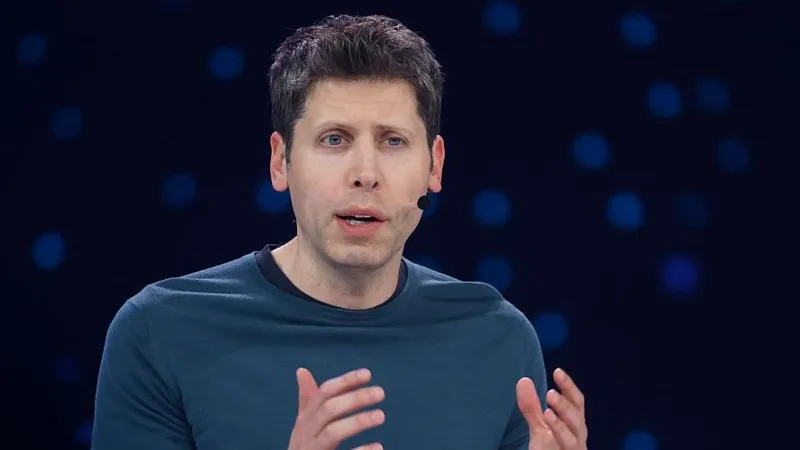Claudia Sheinbaum: What a climate-scientist turned president might mean for global efforts to tackle climate change
In Claudia Sheinbaum, Mexico has elected the most scientifically experienced climate premier in history. Can she make a difference?

Margaret Thatcher in Britain. Angela Merkel in Germany. And now Claudia Sheinbaum in Mexico. All three are the first women to be elected leader of their nations. All three are also renowned for their scientific expertise.
Historically, the combination has been a boon for environmental issues. In the late 1980s, Thatcher, who had a background as a research chemist, sounded the alarm on global warming at the UN. In the 2010s, Merkel, with a doctorate in quantum chemistry, was a champion of the Paris Agreement on Climate Change.
But as their tenures continued, their green advocacy declined, particularly at home. Germany nearly missed its 2020 emissions reduction target. And later in her premiership, Thatcher made an about-face on climate change – de-crying it as an "excuse for worldwide, supra-national socialism"; a position that continues to find echoes in populist right-wing rhetoric today.
Sheinbaum, by comparison, specifically studied environmental engineering and has played a key role in communicating the scientific consensus around climate change on the international stage. So what might a climate scientist-turned world leader mean for the ongoing global attempts to tackle what is widely considered to be the greatest challenge of our time? And will Sheinbaum’s environmental promises withstand the tests of power?
A Mexican first
The 61-year-old arguably has the most formal climate-science background of any political premier in history.
After studying for a doctorate in California – on emissions from buildings and the environmental impacts of Mexico City’s transport sector – Sheinbaum joined the staff at the National Autonomous University of Mexico. In 2007 and 2014, she contributed to two major reports by the Intergovernmental Panel on Climate Change (IPCC), with the body winning a Nobel Prize for its efforts to create an "informed consensus about the connection between human activities and global warming".
Sheinbaum’s expertise could be seen as timely. Her nation’s capital, Mexico City, is currently in the grip of a heatwave so brutal that monkeys are falling out of trees. Internationally, each of the past 12 months has also set new records in global temperature and the world's ocean surface temperatures are also at record-breaking highs. And there is much in her political career to suggest she will take action.
As mayor of Mexico City, a position she held from 2018 to 2023, Sheinbaum spear-headed public transport reform and championed solar energy, installing the largest solar project of its kind in the world.
According to Jose Luis Samaniego, the World Resources Institute’s (WRI) executive director for Mexico and Colombia, under her various roles, Sheinbaum introduced the capital's first Metrobus (a rapid bus transit system), expanded it, added its first electrified line, and launched elevated trolley buses. All of which has contributed to a "big improvement to quality of life", says Samaniego, especially for underserved communities. By providing an alternative to personal cars and replacing more polluting bus services that preceded it, the Metrobus service is reducing carbon dioxide emissions in the city by 35,000 tonnes per year, while also helping to improve air quality.
During her presidential campaign, Sheinbaum promised to boost renewable energy investment by $13.57 billion (£10.61bn), and to deliver rapid action on decarbonisation. If she follows through on advancing a "low and just carbon transition", an analysis by WRI estimates a 3.5% increase in jobs and a 1.6% rise in GDP.
On water shortages too, Sheinbaum is taking a "step in the right direction", says Sandra Aguilar-Gomez, assistant professor at the Universidad de los Andes. "The current regulations have several loopholes that allow ‘water millionaires’ with virtually unlimited water rights, while six out of 10 households in Mexico lack access to safe drinking water," Aguilar-Gomez says, noting that Sheinbaum has announced a National Water Plan that would address the inequality.
Yet many have reservations about the degree of change the new leader will be able to enact.
An oiled machine
While Mexico is often hailed as a climate leader for becoming the first developing nation to pass landmark legislation on global warming, its economy is still dependent on fossil fuels and the country is the world's 11th largest oil producer, extracting 1.6 billion barrels of crude oil a day in 2022. It is also among the largest natural gas importers in the world. And its record on climate action is slipping further and further down the international league.
Sheinbaum’s predecessor, Andrés Manuel López Obrador, was heavily criticised by green groups. He opposed private companies investing in Mexico’s electricity sector, which some argue would have seen more money flow to renewables – and instead backed greater, state-led fossil fuel production as a means to energy independence.
Consequently, by aligning herself closely with López Obrador and running on behalf of his ruling left-wing party Morena, there are some who believe that Sheinbaum will continue in this direction. Her roadmap does not mention net zero. And while, in a televised debate, she promised to help Mexico adapt to climate change when she takes office on 1 October, she also defended López Obrador’s construction of a new oil refinery.
"In one of the debates, she expressed that she envisioned the country becoming a global climate action leader. However, Mexico is still far from that trajectory, and Dr Sheinbaum would need to shift the country away from oil reliance, which would be a significant break from her predecessor," says Aguilar-Gomez.
"A surprising missing item from her [Sheinbaum's] campaign is biodiversity," Aguilar-Gomez adds. Between 10-12% of the world’s species can be found in Mexico, yet López Obrador – also often known by his initials Amlo – drew heavy criticism for a railway mega-project that passed through sensitive habitats. The government, however, insists it will bring a vital economic boost to the communities it connects.
"Sheinbaum is planning to continue expanding passenger rail and she will not overhaul Amlo's infrastructure projects," notes Aguilar-Gomez. "However, she has the opportunity to include impact assessments in these projects and remediation plans, which have been absent from the current administration."
A world of difference?
Squaring the circle of state-owned energy production that currently promotes energy independence through fossil fuels and transitioning to clean energy won’t be an easy task. But if Sheinbaum can make progress on the problem, she will set a notable example for other nations, suggests Samaniego.
"I think this may reposition Mexico," says Samaniego. "Not only in the international arena, as going back to a proactive policy on climate, but maybe we will also have the opportunity to show the positive synergies that can exist between social priorities, economic dynamics and lowering the environmental footprint of a country," he says.
For the US as well, Sheinbaum’s international climate experience could "make her a very valuable ally for a second Biden administration", if President Joe Biden is re-elected in the upcoming US Presidential elections later this year, says Sheila Jasanoff, professor of science and technology studies at the Harvard Kennedy School and who contributed to the same IPCC reports as Sheinbaum, although she says they never met.
"It would be extremely helpful for the US to have a partner in Mexico who understands the magnitude of the climate problem and is prepared to tackle the related issues at a pan-American level," says Jasanoff.
Furthermore, victory for a woman in politics could in itself be a position sign for climate action more generally. Like "almost all" of the world’s most intransigent problems, Jasonoff points out, climate change exacts a heavier toll from women. "It is refreshing to see the world acquire a progressive female leader at a time when so many countries are taking a regressive turn," she says.
What exactly Sheinbaum's election will mean for climate action around the world will take time to fully unfold. "It is clearly an issue about which she is knowledgeable, probably more so than any other head of state or head of government in the world," says Professor Robert Stavins, director of the Harvard Environmental Economics Program. "But how this will translate into government action (beyond public statements) is unknown as of now."
Yet for the US climate scientist Michael Mann, Sheinbaum’s election is an encouraging step. Firstly, Mann says, her climate background rejects the notion that scientists should distinguish themselves from calls for action. And secondly, it is a reminder that "scientists have to step up to the plate and be willing to consider playing a more public role in the science policy decisions that will shape our future", he says.
-bbc






